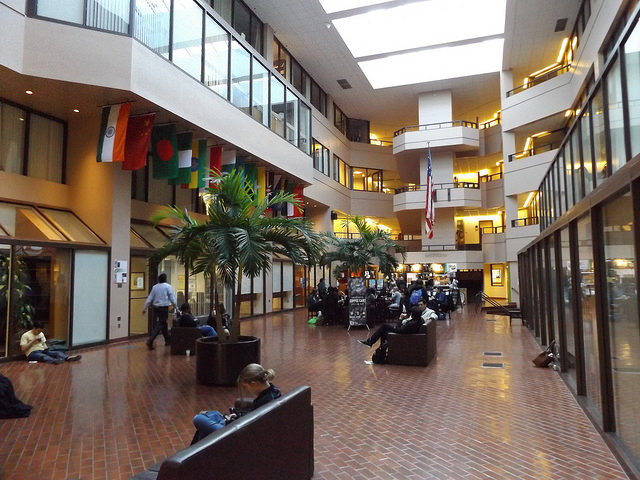Georgetown professor of Religion & International Affairs and Islamic Studies John L. Esposito presented a talk entitled “Islamophobia – A social disorder that impacts our nation and students,” hosted by Georgetown’s Office of Institutional Diversity, Equity and Affirmative Action (IDEAA) in the Leavey Center Program Room. The event aimed to raise awareness of the recent development of Islamophobia, and dispel potential misconceptions about the topic.
Esposito is the founding director of the Prince Alwaleed Bin Talal Center for Muslim-Christian Understanding in the SFS and director of the Bridge Initiative, which aims to raise public awareness of and enrich public discourse on Islamophobia.
Following a brief introduction by IDEAA’s director, Michael Smith, Esposito spoke on the normalization of Islamophobia in recent years, and the effect Islamophobia has bad on international affairs. By the 2008 and 2012 presidential elections, Islam had become an issue of debate due to the increasing media coverage of Islamic extremism.
To explain how this change came about, Esposito continued on to explore the significant influence of media on the public. “What you see in TV is what you believe is endemic to the whole population,” he said.
According to Media Tenor, in 2011, 25 percent of news covered Islamic extremism, with only 0.1 percent discussing “mainstream modern Islam…in a broader context.” This has influenced the majority of Americans’ perception of Islam. As a result, Esposito cited that “$219 million has gone to ultra conservative, anti-immigration, Islamophobic media sites”.
Esposito also discussed the education levels and lives of the vast majority of Muslims in the U.S., to dispel false prejudices. Immigrant Muslims from over 68 countries comprise the second highest educated demographic in the country. “40 percent [of Muslim immigrants have college degrees, versus 29 percent of Americans overall,” he said. Moreover, Muslim men and women are statistically equally likely to hold doctorates in the U.S. due to more equal educational opportunities.
Esposito encouraged Georgetown faculty and students to develop small discussion groups to continue raising consciousness about this relevant issue, and advocated for student-led projects to improve representation in Georgetown’s diverse community.
“Religious pluralism is critical for our times. Tolerance is not enough,” he said. Tolerance needs to have an inclusive, rather than exclusive world view. And inclusive means you accept the diversity, but you also accept the equality and civil liberties of all other American citizens.”






